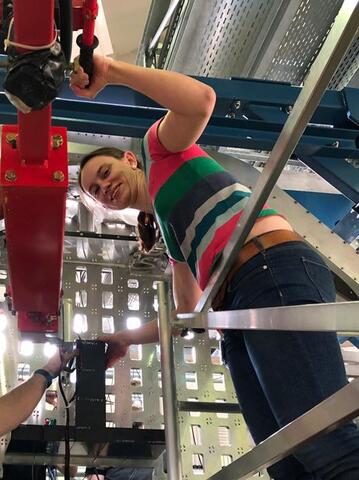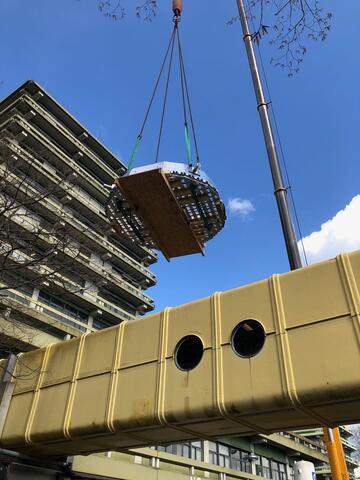Workshop „Physics Opportunities with Proton Beams at SIS100” was held in Wuppertal
PANDA meetings
04/03-08/03 2024 CM 24/1 in Münster
24/06-28/06 2024 CM 24/2 at GSI
25/06-26/06 2024 FEE/DAQ Workshop
04/11-06/11 2024 CM 24/3 at GSI
05/03-07/03 2025 WS at GSI
16/06-20/06 2025 CM 25 in Uppsala
Performance und Lebensdauer von MCP-PMTs der neuesten Generation hinsichtlich ihrer Einsetzbarkeit im P̄ANDA-Experiment
Markus Pfaffinger
TH-PHD-2020-006.pdf
(41.92 MB)
The topic of the following thesis is the investigation of Microchannel-Plate Photomultiplier Tubes (MCP-PMTs) and their suitability for the P̄ANDA experiment. After an introduction to the physical goals of P̄ANDA the setup of the detector will be described. The Cherenkov detectors for particle identification, for which the MCP-PMTs are used, will be discussed in more detail. After this the general functionality and new improvements of the MCP-PMTs will be illustrated. The different measurement methods for the performance parameters will be explained in detail. The results obtained in this thesis show that at least two MCP-PMTs that have been optimized in a long R&D process, the Hamamatsu R13266-07-M64M and the PHOTONIS XP85112/A1-Q-HA, are well suited for the usage in P̄ANDA.
The main focus of this thesis is the investigation of the aging and the measurement of the lifetime of newly developed MCP-PMTs. A critical value for the lifetime is the quantum efficiency, which is measured as a function of the integrated anode charge. An existing lifetime measurement setup has been modified during this work to fit the measurement requirements of the new MCP-PMTs. The lifetime increases significantly when a so-called ALD coating is applied to the MCP pores. This caused the lifetime measurements to get lengthy. With the results of this thesis it can be concluded that this new treatment method leads to an increased lifetime by a factor of 50 − 100 compared to not treated devices. The obtained results are also in agreement with the few measurements obtained at other institutions. Furthermore, it could be shown, that the aging of the photocathode is caused by feedback ions. These ions get accelerated by the electrical field of the PMT and damage the photocathode irreversibly on impact. The ALD coating reduces this flux of feedback ions considerably. Meanwhile, MCP-PMTs are the favored sensors for high energy experiments, which expect a high radiation environment and need a very fast single photon detection that is located in a high magnetic field.
The main focus of this thesis is the investigation of the aging and the measurement of the lifetime of newly developed MCP-PMTs. A critical value for the lifetime is the quantum efficiency, which is measured as a function of the integrated anode charge. An existing lifetime measurement setup has been modified during this work to fit the measurement requirements of the new MCP-PMTs. The lifetime increases significantly when a so-called ALD coating is applied to the MCP pores. This caused the lifetime measurements to get lengthy. With the results of this thesis it can be concluded that this new treatment method leads to an increased lifetime by a factor of 50 − 100 compared to not treated devices. The obtained results are also in agreement with the few measurements obtained at other institutions. Furthermore, it could be shown, that the aging of the photocathode is caused by feedback ions. These ions get accelerated by the electrical field of the PMT and damage the photocathode irreversibly on impact. The ALD coating reduces this flux of feedback ions considerably. Meanwhile, MCP-PMTs are the favored sensors for high energy experiments, which expect a high radiation environment and need a very fast single photon detection that is located in a high magnetic field.





